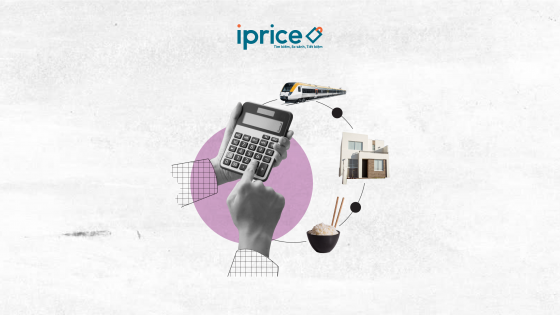LinkedIn, the world’s largest professional network has launched LinkedIn Opportunity Index 2021. The annual Index is a composite measure that seeks to understand how people perceive opportunities and the gaps that stand in the way of achieving them.
This year’s research looks at the impact of the pandemic on Singaporean’s access to opportunities. More importantly, it spotlights the gender gaps that continue to exist in the workplace, and how these affect women’s opportunities for career development.
Silver linings still exist amid challenging job market with pay cuts and reduced working hours
Almost 8 in 10 Singaporeans feel they have been negatively impacted by COVID-19, citing job insecurity, reduced work life balance and reduced pay. This has likely led to a cautious economic outlook amongst Singaporeans, with less than half (41%) expecting the economy to improve over the next 6 months and even fewer (27%) expecting their financial situation to improve over the same period. In addition, over 5 in 10 Singaporeans feel that it is harder now to overcome barriers such as a difficult job market and a lack of time, than before COVID-19.
Despite the bleak economic outlook, Singaporeans started looking for new opportunities beyond work, namely, to help others within the community. For example, 26 percent looked to providing safety support items like sanitizer and masks to others within the community, 24 percent looked for ways to serve society and 21 percent looked to help or mentor others to gain opportunities.
In addition, Singaporeans sought out learning opportunities. Learning new soft skills — leadership skills, creative thinking and problem solving — were sought after by more millennials and career starters, while learning new hard skills — business analysis, artificial intelligence and cloud computing — was sought after by millennials.
“About a year on since COVID-19 hit us, many continue to struggle from job loss and job instability. Yet it is heartening to see that people have also turned their focus towards helping the community,” said Feon Ang, Vice President, Talent and Learning Solutions, APAC, LinkedIn. “This is also a journey that we are working towards at LinkedIn because we believe in the power of community in helping others get back on their feet. We have also stepped up efforts to initiate mentorship opportunities for job seekers facing more barriers with our LinkedIn Coaches and Network Gap Alliance.”
Women still face significant barriers in achieving job-related opportunities
While many women in Singapore now have the flexibility to work from home, they face other barriers when it comes to achieving opportunities, including lack of time (62 percent) and a difficult job market (58 percent). A lack of required skills (55 percent) and guidance from their network (50 percent) are also cited as barriers women face.
In spite of these barriers, women are prepared to work hard, but they desire equal access to opportunities as men. In fact, women see these two as the most important aspects (82 percent and 76 percent respectively) to getting ahead in life.
Close to 6 in 10 Singaporeans saying that gender equality has improved compared to their parents’ time, however, many still feel gender bias continues to exist in the workplace
2 in 5 Singaporeans agree that women have fewer career advancement opportunities, and are paid less than men in their profession. This figure is more apparent among women and working mothers. In fact, almost 6 in 10 women in Singapore have experienced that their gender played a role in missing out on opportunities, promotion and pay.
Our research suggests that this mindset may stem from broader societal perceptions around gender. While 70 percent think that gender equality is an important value for a fair society, half of the respondents believe that it has already come far enough and has been achieved to a satisfactory degree. Furthermore, over 4 in 10 think that gender equality is impossible to achieve, and this sentiment is higher among men. This potentially shows that Singaporeans feel not much more can or should be done to further gender equality.
Ang said, “Singapore’s workforce has taken a hit due to COVID-19 across the board, women included. The lack of time is the top barrier for women today — likely due to having to juggle remote working and family responsibilities. We also know that women are seeking to get ahead in life, and want equal access to opportunity as men. As a society, we need to start changing our societal perceptions on gender. In our organisations, too, we need to level the playing field for women. When we succeed, the economy and our organisations succeed as well. The government has announced that 2021 as the year of Celebrating SG Women — and this is an opportune time for all of us to carry this torch forward together.”
Businesses’ have an important role to play to bridge the gender gap and ensure equitable recovery for all
Encourage open conversations on diversity
Our data shows that only 14% of working professionals in Singapore strongly agree that gender diversity is a priority in their organisation. In Singapore, LinkedIn recorded year-on-year growth of senior leaders taking the lead and initiating conversations about diversity on the platform. In addition, content on diversity gets on average 144 percent more engagement than the average company post. This is a positive sign that people are receptive to senior leaders’ call for gender diversity, which could ultimately help address the gender gap and ensure equitable recovery for all.
Initiate group mentoring programmes in the company to help women soar in their roles
2 in 5 Singaporeans agree that women have fewer career advancement opportunities, and are paid less than men in their profession. At LinkedIn, we have programmes that support our community of women in their professional growth. For example, EmpowerIn is a leadership development programme to help high-performing women realise their full potential at the workplace. After three very successful cycles of the programme, we are committed to running our fourth cycle virtually this year.
Implement policies to help women balance work and personal life
With the majority of women still the primary caretaker at home, more expect organisations to provide them with work from home (40%), reduced schedules (35%) and part time schedule (29%) options. Expectation for extended maternity policies is also a strong sentiment among working mothers. This suggests that women are aware and more vocal about the support they need from the workplace in order to balance work and family responsibilities effectively.
To help people and businesses take steps to improve gender equality in the workplace, LinkedIn is making 5 LinkedIn Learning courses available for free till March 31, 2021.
- Leadership Strategies for Women
- Planning Your Family Leave and Return
- Proven Success Strategies for Women at Work
- Own It: The Power of Women at Work
- Becoming a Male Ally at Work
“There is strength in numbers. When more organisations come together, we can do more to help bring equitable recovery for all. It always starts with one small step — from encouraging open conversations on diversity and equality, and advocating for practical initiatives from flexible working hours to mentoring programmes. We must foster the right culture and values in our organisation, to ensure that everyone progresses together, and no one is left behind. When we do this, we can achieve so much more,” said Ang.
Check out Feon Ang’s blog post on how the Covid-19 has widened the gender gap across APAC.
Culture Group Trends Report 2021
Do you have an article, infographic, podcast, presentation slides, press release or a key individual from your organisation that you'd like to highlight on Marketing In Asia? Head on over to Upload Your Content for more info.



















